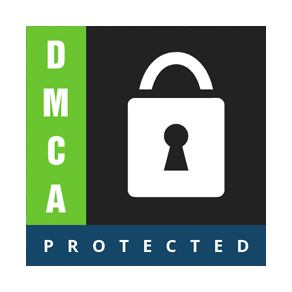When buying a home, closing costs can be a significant expense. They include fees like inspection charges, title insurance, and loan-related costs. As a buyer, it’s common to wonder if you can negotiate with the seller to help with these costs. This blog will explore how to get the seller to cover these costs, offering strategies to help you save money.
Why Sellers Might Agree to Pay Closing Costs
Understanding the Seller’s Perspective
Sellers aren’t obligated to pay for the buyer’s closing costs, but there are situations where they may be willing to contribute. Here are a few reasons why sellers might agree to pay:
- To Make the Deal More Attractive
In a competitive market, a seller might offer to pay some closing costs as an incentive to attract buyers, especially if the house has been on the market for a while. - To Close Faster
If a seller is in a hurry to sell the property due to personal circumstances (like a job relocation or financial reasons), they may offer to cover closing costs to expedite the process. - Negotiation Strategy
Sellers might prefer offering to pay part of the closing costs rather than lowering the sale price, as it can seem like a more direct benefit for the buyer.
How to Ask the Seller to Pay Closing Costs
1. Include It in Your Offer
One of the most straightforward ways to get the seller to pay for closing costs is by including this request in your initial offer. Here’s how you can do it:
- Be Clear in Your Offer Letter: Mention that you’re requesting the seller to contribute a certain amount towards your closing costs. This amount is often expressed as a percentage of the home’s sale price (usually between 2% and 5%).
- Make It Part of Your Negotiation: Position the request as part of a larger negotiating strategy. If you’re offering close to the asking price, asking for seller-paid closing costs can be seen as a reasonable request.
2. Offer a Higher Price
If you find the seller unwilling to cover closing costs outright, one strategy is to offer a higher purchase price and ask for a credit to cover the closing costs. For example, you could offer $5,000 more than the listing price in exchange for the seller covering the closing costs. This can be attractive to the seller because they’ll still receive the higher price but offset it with closing cost assistance.

When is Asking for Seller-Paid Closing Costs a Good Idea?
1. In a Buyer’s Market
Buyer’s market, where there are more homes available than there are buyers, sellers may be more open to negotiations. In such conditions, you’re more likely to find a seller willing to help with the closing costs, especially if the property has been sitting on the market for a while.
2. When Interest Rates Are High
High interest rates can make homes less affordable, so buyers may look for other ways to save money. Sellers, in turn, may be more inclined to offer financial help to make the sale happen.
3. When the Home Has Been on the Market for a While
If the home has been listed for a long time and the seller is motivated to sell, they might be more willing to negotiate on the closing costs. Homes that linger on the market are often considered less desirable, so offering closing cost assistance can be a way for the seller to make the deal more attractive.
How Much Can the Seller Pay Towards Closing Costs?
Understanding the Limits
In most cases, the seller’s contribution towards closing costs is negotiable, but there are limits based on the type of loan you’re using. Here’s an overview of the common limits:
- Conventional Loans: The seller can contribute up to 3% of the purchase price for homes that are being financed through conventional loans.
- FHA Loans: With an FHA loan, sellers can contribute up to 6% of the sale price toward the buyer’s closing costs.
- VA Loans: Veterans using VA loans can have the seller cover up to 4% of the sale price in closing costs.
- USDA Loans: Similar to FHA loans, the seller can pay up to 6% of the purchase price for USDA-backed loans.
These limits vary depending on the type of loan and the amount of the down payment, so it’s important to check the guidelines for your specific situation.
Tips for Successfully Negotiating Seller-Paid Closing Costs
1. Be Prepared to Compromise
Negotiations are rarely one-sided. If the seller is unwilling to cover the full amount of your closing costs, be open to negotiating a compromise. You could ask for a lower contribution or agree to split the costs.
2. Use an Experienced Real Estate Agent
A seasoned real estate agent can help you craft an offer that includes seller-paid closing costs. They’ll know how to frame your request in a way that’s likely to be accepted by the seller.
3. Don’t Rely Solely on Closing Cost Contributions
While having the seller cover closing costs can be a big help, don’t base your decision solely on this factor. Make sure the property is in good condition, fits your needs, and is priced appropriately.
Conclusion:
Getting the seller to pay for closing costs can significantly reduce the financial burden of purchasing a home. By understanding the seller’s motivations, timing your request well, and working with an experienced agent, you can increase the likelihood of securing this benefit.
Remember, while asking for seller-paid closing costs is a common negotiation strategy, it’s important to approach the conversation thoughtfully and consider the broader context of the deal. With the right strategy, you can save money and streamline the buying process.
Read More The 10 Hottest Housing Markets for 2025
FAQ’s
If the seller refuses, you can either cover the costs yourself or negotiate other terms, such as a lower sale price.
No, in a seller’s market, buyers have less negotiating power, and sellers are less likely to cover closing costs.
Typically, sellers can pay 3-6% of the sale price, depending on the loan type (3% for conventional, 6% for FHA).






